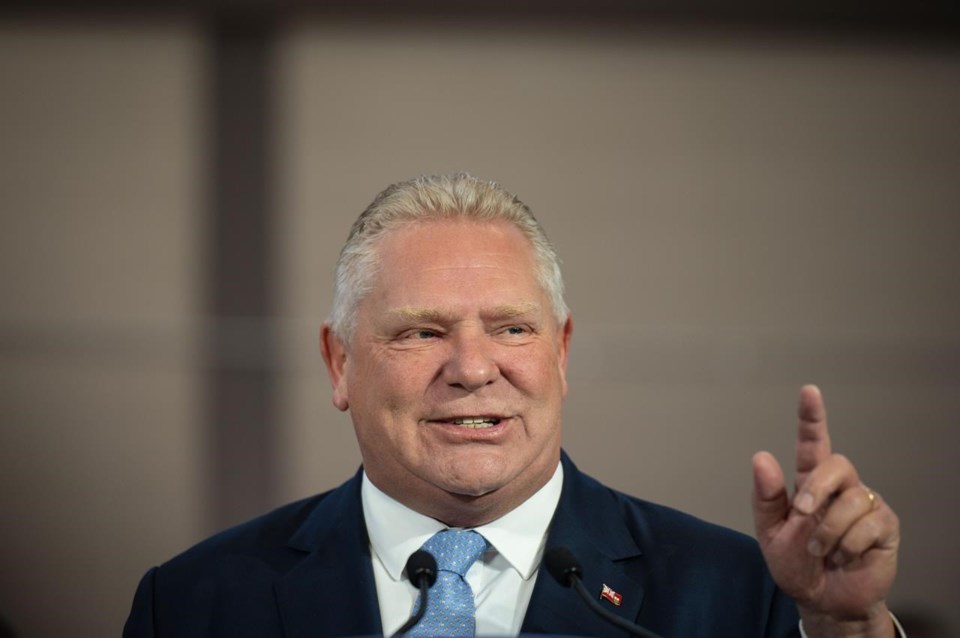Ontario Premier Doug Ford said Wednesday he does not want to raise tuition for post-secondary students, despite colleges and universities struggling financially and a panel that recommended otherwise.
Ford's government cut tuition by 10 per cent in 2019 for Canadian students and froze it.
A government-commissioned "blue-ribbon panel" recommended the province unfreeze tuition, raise student aid and increase operating grants to the schools.
"I just don't believe this is the time to go into these students' pockets, especially the ones that are really struggling, and ask for a tuition increase," Ford said at a news conference about combating car theft.
The province has not said how it will respond to the panel's report other than saying it would work with the schools to find efficiencies, something Ford reiterated.
"We're going to work with our colleges and universities to support them any way we can and drive efficiencies throughout the system," he said.
"You know, there's some classes out there, believe it or not, that have six or seven students. That's unacceptable."
The tuition cut and freeze on domestic students combined with low provincial funding forced many schools to look for different revenue streams.
Colleges in particular vastly increased their reliance on international students, who were not subject to the tuition freeze, as a way to increase revenue.
But the federal government recently introduced a cap on international students' study permits that will see Ontario's allotment of new visas cut in half.
The move was done, in part, to deal with "bad actors" in private colleges that made false promises of citizenship after graduation and some institutions that are allegedly diploma mills.
There has also been a recent surge in international students, which the federal government said has increased demand for housing, of which there is little supply, especially in Ontario.
The province recently said post-secondary institutions must guarantee housing for international students, but has not explained how that will work.
Colleges Ontario, which represents the province's 24 publicly funded colleges, said the new cap is already creating havoc as the schools have year-round intake of students.
The organization said it continues to work with the province on the problems the schools face.
"We recognize Ontarians are very concerned about affordability and the high cost of living," said Colleges Ontario president Marketa Evans.
"At the same time, it’s essential for Ontario to invest in its public college students."
Evans said colleges would like to see a 10 per cent increase in operating grants from the province and the creation of a distinct tuition policy for public colleges "that addresses the long-standing inequities between college and university education."
Both Colleges Ontario and the Council of Ontario Universities have asked the federal government to cancel or delay implementing the international student visa cap.
Both have also called on the province to immediately implement the recommendations from the blue-ribbon panel.
This report by The Canadian Press was first published Jan. 31, 2024.
Allison Jones and Liam Casey, The Canadian Press

